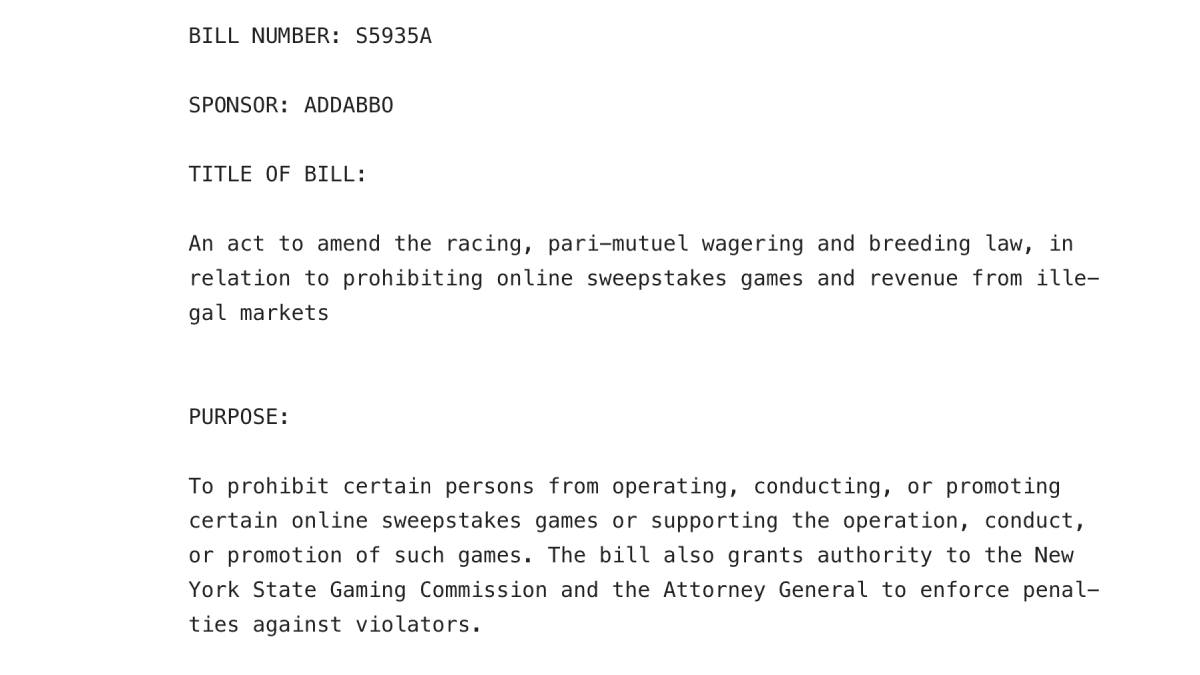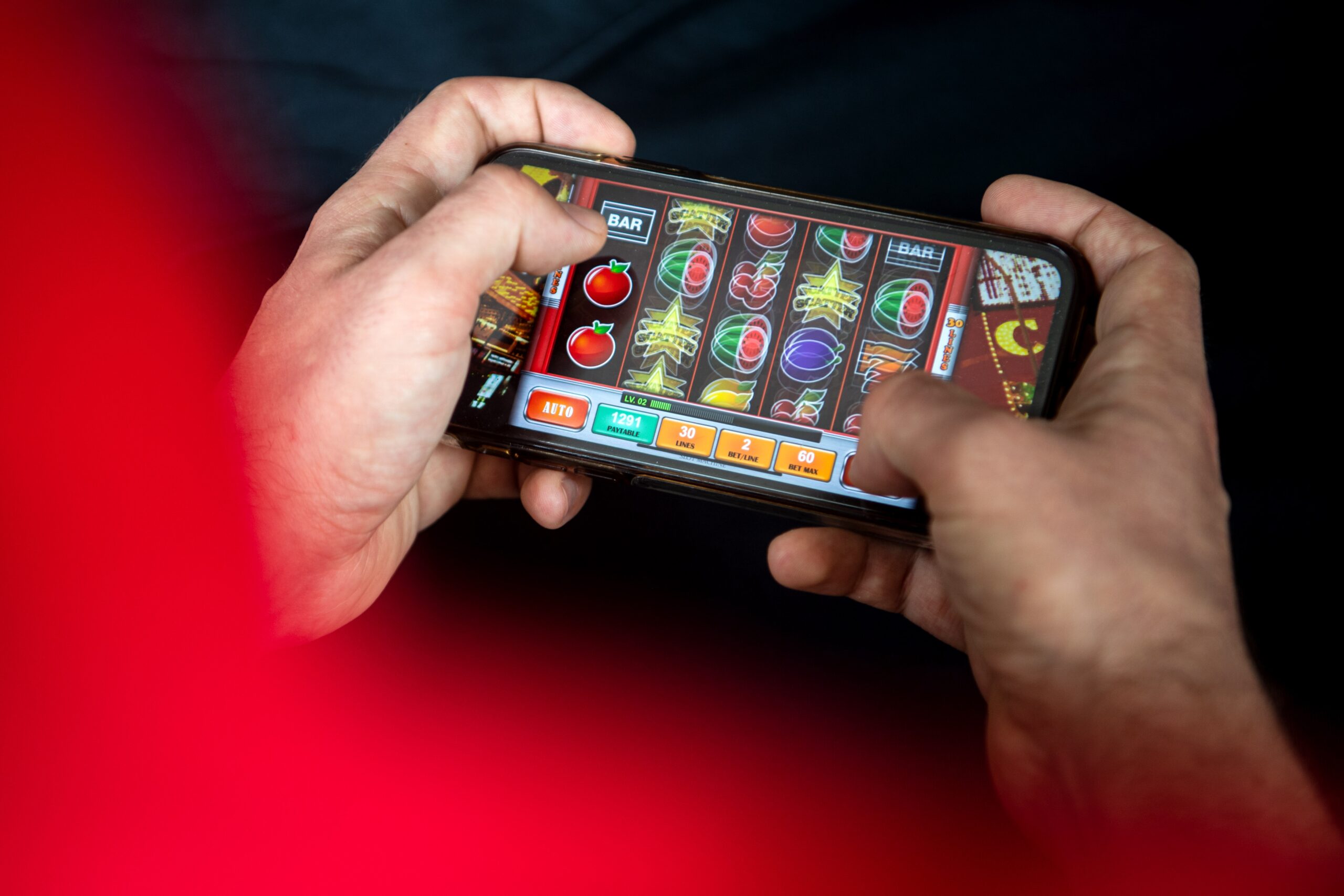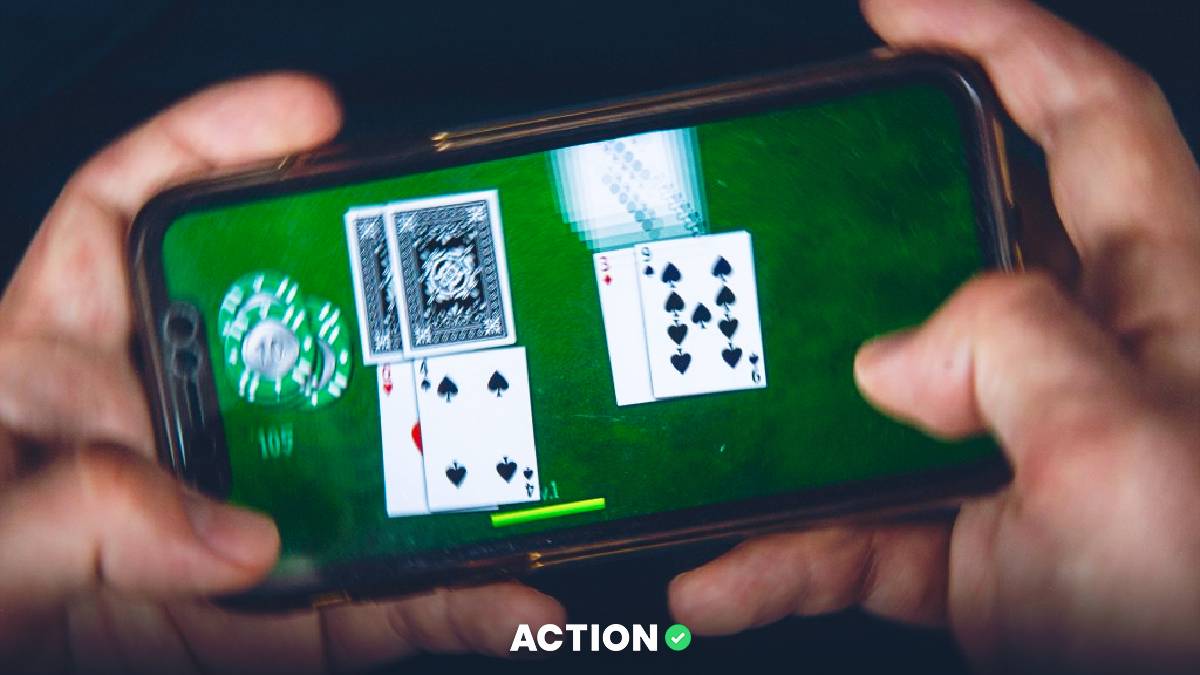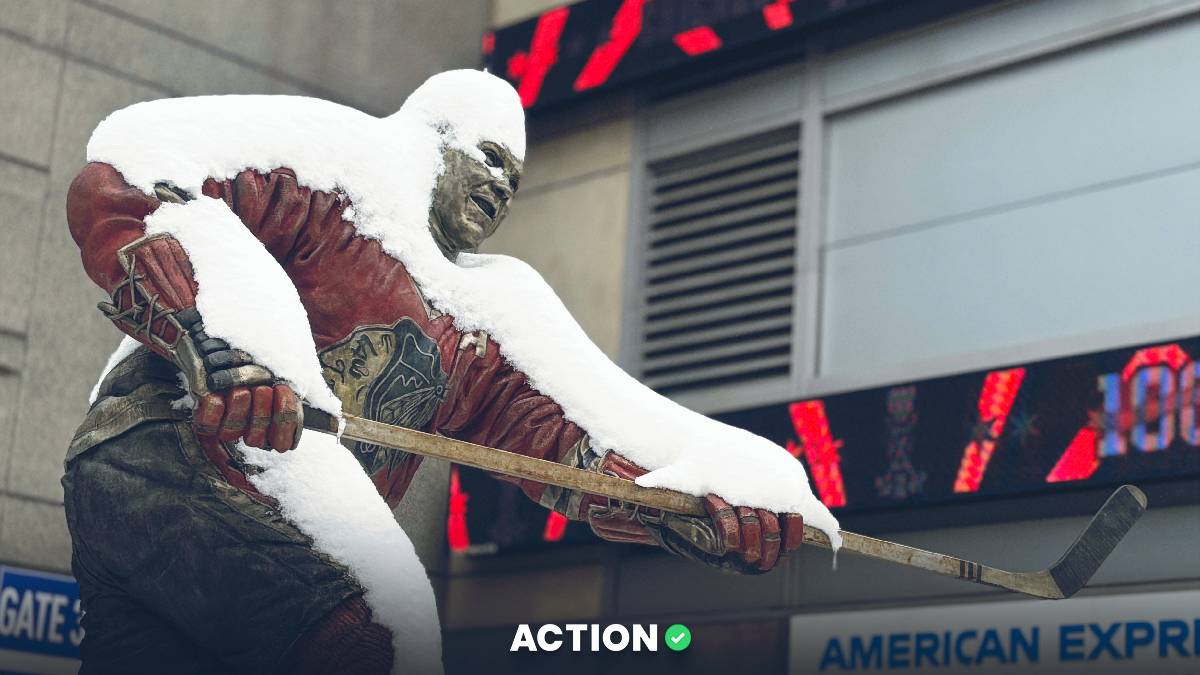The Social and Promotional Games Association (SPGA) addressed concerns over a recent amendment to New York Senate Bill S5935, which would ban online sweepstakes promotions.
This amendment places the responsibility on the New York State Gaming Commission to define what a "dual-currency system" means in the context of the law.
This move comes after widespread worries that the bill could harm small businesses and major brands, from Marriott to McDonald's and Starbucks, by criminalizing common sweepstakes and marketing practices. According to a spokesperson from the SPGA, the amendment attempts to address these concerns but ultimately falls short. They described it as a "political patch" that fails to resolve the core issue at hand.
What is New York Senate Bill 5935?
The New York State Senate's Racing, Gaming, and Wagering Committee recently approved SB5935. If this bill becomes law, it will ban online sweepstakes games in New York that allow players to use a special kind of currency to win prizes or money in games similar to casino games.

The bill doesn’t stop at just the games. It also targets other businesses, such as banks and companies that help with payment processing or promotion of these games. Under this legislation, these businesses would not be allowed to support the operation of such sweepstakes games in New York.
If someone breaks this law, the penalties could be hefty, ranging from $10,000 to $100,000.
Other states, including New Jersey, Mississippi, Connecticut, and others have introduced similar measures that would either ban or regulate sweepstakes casinos.
How Sweepstakes Casino Games Work
Sweepstakes casino games have become popular in recent years because of their unique way of operating, called dual-currency gaming. On these platforms, players use virtual coins, which can later be exchanged for cash prizes.

Right now, this setup lets sweepstakes games exist without breaking any current laws. They take advantage of a loophole by following the rule of "no purchase necessary," which is a key feature of legal sweepstakes and not lotteries.
Players buy Gold Coins, which don't have actual value and are used just for fun. When they do this, they automatically receive Sweepstakes Cash that does have value. Players then use this Sweepstakes Cash to play and potentially win real money.
Many times, these games follow a particular theme, like the Kentucky Derby,Warm Weather, or even Virtual Vacations.
Why The SPGA Says the Amendment Is Bad for Businesses
By leaving the definition of a dual-currency system up to the regulators, this amendment may create more confusion and risk for those involved in mobile gaming, marketing platforms, and loyalty programs. The SPGA suggests that merely passing the issue off to the Gaming Commission doesn’t alleviate the inherent risks posed by the legislation.
The SPGA spokesperson highlighted that the need for amendment already indicates a flaw in the bill. They urged New York legislators to look closer and cautioned other states, such as Louisiana, against repeating the same mistakes. They criticized lawmakers for worsening the situation rather than correcting the course.

New York has advanced this bill without engaging with stakeholders and legal experts. The SPGA believes this approach could stifle innovation by unnecessarily dictating which mobile games New Yorkers can access. They emphasize their commitment to collaborating with lawmakers to develop balanced regulations protecting consumers and not criminalizing digital entertainment.
The SPGA calls for modern, thoughtful regulations that safeguard interests without hindering business and creativity. They say they stand ready to work with any legislator dedicated to refining laws that best serve everyone involved.









